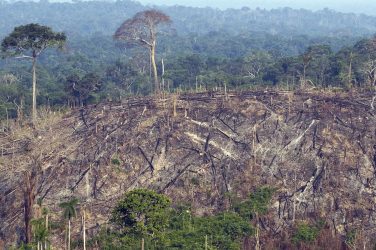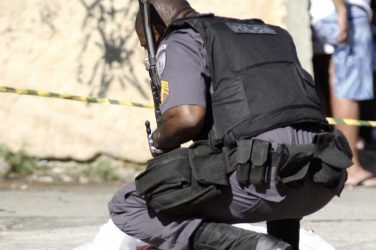Global food companies Danone and Dairy Partners Americas Brasil (DPA), partly owned by Nestlé, are in danger of being added to Brazil’s “dirty list” of companies that have engaged in slave labor, government officials announced.
The list is considered one of the country’s best tools to fight slave labor. Organizations that appear on it are barred from accessing credit from state banks or other public financial support.
The two companies have been caught up in an ongoing audit of the dairy supply chain in São Paulo, said Renato Bignami, the labor inspector coordinating the audit.
“They received a notification (of the labor violations) that, if deemed well-founded, will result in the names of the two companies being added to the dirty list,” Bignami said.
Both companies denied wrongdoing.
Danone and DPA are accused of being complicit with a businessman who kept 28 people in debt bondage, because their affiliated distributors sold him their products in bulk without monitoring working conditions at his operation.
The door-to-door salesmen had been trafficked from poor regions of the state of Ceará, and made to sell soon-to-be-expired yogurt at a discount in the city of Salto, in the state of São Paulo.
Investigators found that about 70 percent of the products being sold were from Danone and Nestlé brands. The other 30 percent were from smaller companies that will also be notified over the next few weeks.
“Many workers arrived already in debt due to the cost of travel,” said Luis Alexandre Faria, the labor inspector that coordinated operations on the ground.
“They sometimes worked over 15 hours in extreme heat, cold or rain.”
While Danone and DPA were not directly involved, inspectors want to hold them accountable for not monitoring their distribution chain.
Danone Brasil, maker of products like Activia and Evian water, denied having any relationship with the businessman, and said it will fight the claim that they were complicit.
“The company emphasizes that it has worked in partnership with the Labor Secretariat to spread the company’s best practices and to be an active agent against all forms of slave labor among the more than 10,000 businesses that are part of the complex supply chain that distributes its products,” the company said in an email.
DPA, a joint venture between New-Zealand company Fonterra and Nestlé that sells refrigerated products, also said it did nothing wrong.
The company said that upon finding out about the case, on October 2018, it ceased its relationship with the distributor involved. It also said that it is in the final stages of hiring an external auditor to verify the conditions in which their micro-distributors operate.
“Beyond that, in line with its principles and corporate values, both companies (Nestlé and DPA) have come to adopt, in its distribution chain, measures to ensure that its commercial partners can contribute to the fight against work in conditions analogous to slavery,” the companies said in an email.
This article was produced by the Thomson Reuters Foundation. Visit them at http://www.thisisplace.org













